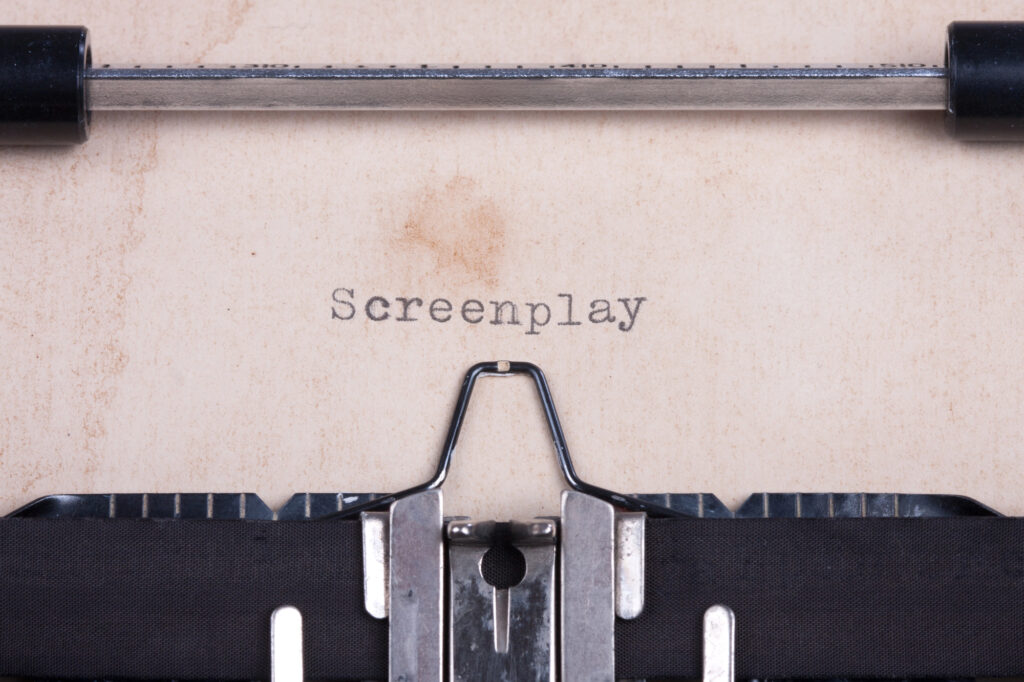A blog post about how to make money reading romance (and other genres) through script reading and story evaluation.
All I wanted to do in life was watch movies and read stories 😊
And get paid for it.
But, like so many others, I was stuck in a soul-sucking job that drained me of life. For years.
I spent days scrolling through job boards, searching for something that felt creative, aligned with my passions, or at least a bit fun.
I even pivoted careers entirely, poured nearly two years into building a new path as an audience researcher… only to end up disappointed by both the paycheck and the reality of the work.
So I did what many of us do: I crawled back to the corporate safety net, disillusioned and out of ideas.
And then somehow, through some weird cosmic powers of manifestation, my dream came true.
I stumbled upon script reading.

What Is Script Reading?
At its core, script reading is about evaluating stories before they ever reach the screen. It’s the professional practice of analyzing screenplays or manuscripts to assess narrative structure, character development, and commercial viability.
Script readers read screenplays or manuscripts and produce structured reports — commonly known as coverage — to assist producers, platforms, or literary teams in determining whether a project is worth pursuing. In essence, readers serve as the first gatekeepers in the development pipeline.
Readers find work mostly at production companies and studios, but also at screenwriting contests or feedback platforms.
For production companies, the reader’s job is to assess whether the material is worth their time and money (or sanity). This role is typically handled by interns or assistants, but in some cases (e.g., evaluating books), it’s outsourced to freelance readers.
At screenwriting contests and film festivals, the evaluation process is generally more concise and less focused on development potential. The goal is to identify emerging talent rather than to find a commercially viable script for immediate production.
On feedback platforms, the focus shifts from recommending projects to helping writers improve their work. This involves providing them with honest, thoughtful, and constructive notes without crushing their dreams.
In all scenarios, the reader must have one eye on the story and the other on the market.
What Is Script Coverage?
The reader’s report typically includes:
- A logline – a one-sentence pitch summarizing the project’s hook
- A brief synopsis – what happens, in plain English
- Comments on the concept – its originality and market appeal
- Evaluation of structure, pacing, and tone
- Notes on characters and dialogue
- Occasionally, also characters’ summary– to evaluate casting potential, or what kind of talent the project could attract to get funding
For the books, the goal was to determine if the story was filmable (aka it has sufficient visual action and external conflict, and does not live entirely inside a character’s head).
Each report ends with a verdict from three options:
- PASS – The weaknesses outweigh the strengths. (A polite “thanks, but no.”)
- CONSIDER – There’s promise here, but it needs work.
- RECOMMEND – This is ready to go. Drop everything and produce it now.
Spoiler: most scripts don’t land in the “RECOMMEND” pile. Not even close. Even a “CONSIDER” is a minor miracle.
Just to put things in perspective, I gave that rating once. In my entire reading career. It is like spotting a unicorn in the wild.
Reading Romance for Money

While I covered scripts and novels across just about every genre, romance was something I gravitated toward. And eventually stuck with.
Some of the projects were full-blown RomComs or cozy romantic holiday films. Others were biopics, thrillers, or prestige dramas with a love story woven into the plot.
I read for production companies, indie producers, and screenwriting contests in both UK and US. Eventually, I settled into reading for feedback platforms, where the work was the most consistent and deadlines manageable.
Most of the material came from aspiring writers, but now and then, a recognizable name would land in my inbox — often an actor-turned-writer dipping a toe into screenwriting. This is how I’d find my way into Hollywood inner circle… without ever leaving the couch.
The pay wasn’t life-changing, but it was steady, remote, and a great way to earn side income doing something I genuinely enjoyed.
Romance: More Than Just Love Stories
Working in the industry, I was constantly struck by how wildly underrated romance is (much like its predominantly female audience).
For years, love stories were shaped by male producers who didn’t quite grasp what women actually wanted to see on screen. The results were rushed relationships, zero slow burn, and characters falling in love somewhere between scene two and three.
And yet, when it comes to screen adaptation, romance is one of the most commercially viable genres out there. It nails the fundamentals:
- Clear stakes – Love hangs in the balance, and the ending is uncertain.
- Strong emotional arcs – Characters actually grow.
- A satisfying payoff – The kiss. The reunion. That line that sends TikTok into meltdown.
Romance, at its core, is about tension. It’s about slow burn and delay of gratification. The ache before the kiss. The lingering doubt over whether the feelings are reciprocated.
It’s a pacing choice, and it’s everything.
These stories aren’t fluff. They’re structured, strategic, and designed to hit you right in the feelings. Especially for female viewers — the most underserved, binge-happy demographic in the streaming sphere.
The good thing is that times are changing. The rise of romantasy is finally forcing the industry to pay attention. A prime example is Rebecca Yarros’s Fourth Wing, which is now in development at Amazon Studios with a female-led team.
Because, as it turns out, women do like dragons. And they like kissing. And they like both done right.
What I Learned From Romance Stories
Reading romance taught me more than any textbook could about what makes a story work. Here are just a few of the lessons I picked up:
- Emotion drives everything. If we don’t care about the characters, the plot won’t matter.
- Structure matters. Even in love stories, pacing and turning points are key to keeping the reader (or viewer) engaged. And that the three-act structure is completely useless when you want to write a great story.
- Marketability isn’t magic. It’s often about balancing originality with emotional familiarity — something romance excels at.
These are the kinds of insights that production companies look for when deciding which stories might resonate with audiences.
How I Got Started (and How You Can Too)

I began by taking several script reading courses, which taught me how to write professional reports, break down structure, and speak “industry.” It gave me the basic toolkit I needed to start.
Some of these courses I took were shitty, but the one that was the most informative was Script Reading Course at Industrial Scripts. It is a bit pricey, but they also often hire their “graduates” for their own Script Consultant jobs (you can’t pick your preferred genre, though).
Afterwards, the cold emailing began. I reached out to small production companies, indie producers, screenwriting contests — basically anyone who might need a reader.
Some replied. Most didn’t. But a few took a chance on me, and that’s all it takes to get going.
In the beginning, I read for free or for embarrassingly little money. It wasn’t glamorous, but it helped me build a portfolio and network. I treated every report like it might land in front of someone important, which, fun fact, it sometimes did.
Eventually, those small gigs turned into regular work. I found my groove with feedback platforms, where the assignments were steady, the expectations clear, and the flexibility perfect. And I eventually gathered several returning writers who sought my feedback regularly.
All of this happened online — no Hollywood parties, no industry connections. Just me, my laptop, and a love of breaking down stories (nicely, most of the time).
Conclusion
If you’re wondering whether you can make money reading romance, the answer is yes. It might not be a gold rush, but it’s a genuinely rewarding way to earn side income doing something you already love.
Along the way, you’ll develop a sharp eye for what makes stories work. Not just for producers, but for real people who want to see themselves reflected in love stories on screen (and who knows — maybe you’ll write one of your own one day).
Working as a reader also helped me see romance in a whole new light.
I didn’t just fall for the characters. I started to understand the mechanics behind what made their stories shine. Whether you’re a die-hard romance fan, a curious freelancer, or a writer, there’s real value (and even income) in knowing how stories work.
And in helping them get the spotlight they deserve.
Have questions about how to get started or want to know more about the behind-the-scenes world of story scouting? Drop a comment below.
I’d love to hear from you 😊
See Also
14 Romantasy Tropes That Ruined Our Standards Forever
Leave a Reply